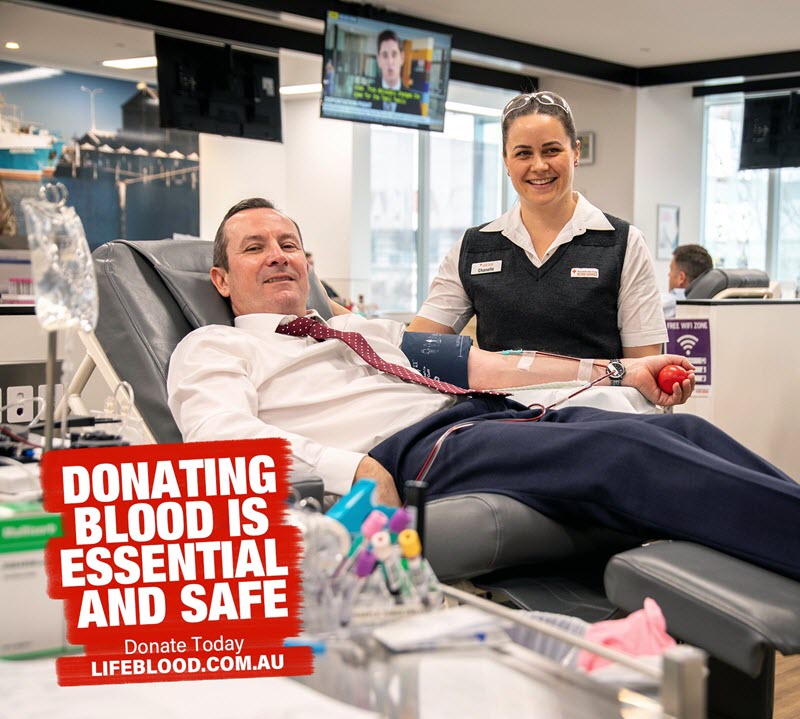
Before we jump in, it’s important to note that there is no evidence to suggest COVID-19 is transmissible via blood transfusion and Lifeblood’s strict screening process means they don’t allow people feeling at all unwell to donate in any circumstance. At donor centres several measures have been implemented to keep donors and staff safe, including increased cleaning and social distancing where possible.
You should not give blood if you are feeling unwell or are following state government guidelines on self-isolation.
Why donate now?
Novel coronavirus hasn’t stopped the demand for essential blood products. Around 29,000 donations are needed per week to help patients including road trauma patients, surgical patients, medical and orthopaedic patients, pregnant mums and cancer patients. Lifeblood currently has over 10,000 unfilled appointments over the coming weeks that need to be filled.
Normal donation rates have dropped significantly in recent weeks. And as blood only lasts 42 days, it’s not like toilet paper, you can’t stockpile for later. A surge in donations around the time of the bushfire crisis also means those donors now can’t donate again for another 12 weeks. Add to this a high number of last-minute cancellations, increased eligibility requirements and self-isolation guidelines for high risk groups and you can see why more donors are essential.
Reassuringly, the stay at home recommendation does not apply. Attending an appointment to give blood is considered an essential activity and exempt from restrictions as outlined by Lifeblood Chief Executive Shelly Park.
“Donating blood and plasma remains an essential activity to keep blood flowing to patients across the country, and travel and venue restrictions do not prevent you from giving blood – we need you now more than ever.”
And if we are still yet to convince you, donating is sure to make you feel like a hero and the free snacks are pretty fun too.
Who is eligible?
Generally speaking, most fit and healthy Australians between the ages of 18 – 75 are eligible to give blood, but lately the conditions have changed a bit.Now, new 28-day restrictions exist for anyone who has travelled overseas to any country or had contact with a confirmed case of COVID-19. Anyone who has had the virus themselves will be unable to donate for three months post recovery.
Other factors that might temporarily disrupt your ability to give blood include certain medication, recent tattoos or piercings, dental work or surgery.
The best way to find out if you are eligible to donate is to take the Lifeblood Eligibility Quiz. Its quick, simple, and you get to find out if you have the power to save lives.
Where can I donate?
Within the City of Perth there is the CBD Donor Centre on William Street where you can donate whole blood, platelet or plasma. They are usually available for drop-in appointments and offer free three-hour parking at a nearby location.Further afield there are Lifeblood Donor Centres all over Perth, so you can find the one closest to you.
While the fallout from COVID-19 may not be fully appreciated until we break through the other side, there are some things we can do now to lessen the immediate consequences. Donating blood is one of them, please, answer the call if you can.
- 09 Apr '20


